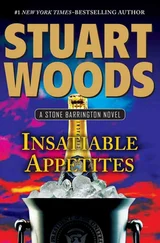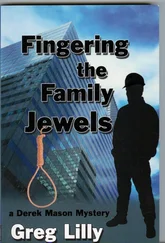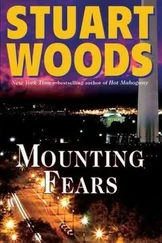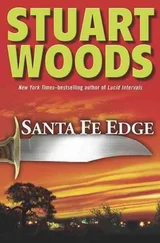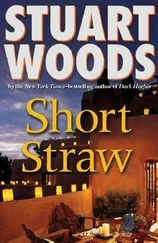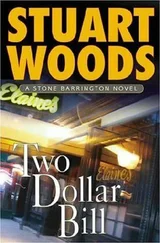“I took the liberty of ordering your wine,” Randol said as the waiter poured them glasses of a chilled Meursault.
“Thank you, Randol, your grasp of enology was always better than mine.” They clinked glasses and sipped.
“You’re having the choucroute, of course.”
“Of course.”
Randol caught a waiter’s eye and held up two fingers. “You’re looking very well, Paul, prosperous, even.”
“I can’t complain — well, I could complain, but it wouldn’t do any good.” The two men laughed at the little joke.
“And what knowledge do you seek in Paris?”
Paul decided to be oblique; it might save him money in the end. “Tell me,” he said, “was your father still working in 1946?”
“Indeed, yes. He worked until 1959, when the firm was acquired, and then for another five years under the new management.”
“Was he engaged in original work, still, or mostly in copying his old designs?”
“Both, I should imagine. Pickings had been lean during the war years, of course, except for pieces ordered by the Germans. What interests you about that period?”
“A client of mine, a prominent New York attorney, is the executor of a rather interesting estate, and he has engaged me to appraise the jewelry, among other things.”
“I see. Are there some pieces from Blume included?”
“Only one. It comes with a receipt from 1946, for a copy of a piece designed in 1899.”
“Ah, that would be near the beginning of my father’s long career. He would have been working under his uncle, François, at that time. What was the piece, and who ordered it?”
“It was a diamond-and-ruby choker, ordered by a Viennese, Ferdinand Bloch-Bauer, as a wedding gift for his wife.”
“Ah, of course, the piece in the Klimt painting. A great loss, that.”
“Loss? How so?”
“Well, it disappeared around the end of the war. Hermann Goering had appropriated it, and it never turned up after he was arrested by the Allies.”
“Yes, that is sad. The receipt mentions that the copy was made from the original designs. Do those still exist?”
“Well, as you know, Blume was acquired by Aubergonois et Fis, in 1964. Most of the value of their purchase, apart from some loose stones, was in the Blume designs.”
Paul’s heart leapt. “Are they still in business?”
“No, they went under in ’89.”
Paul’s heart sank. “Ah. Any idea what happened to the designs?”
“I could investigate that for you. They could have ended up in an incinerator.”
“Well, if you have the time, my client would be happy to see them.”
“Merely to view, or to purchase?”
“I imagine that copies would do, but I can inquire if he has any interest in the originals. He did ask about the possibility of a photograph of the original, so that he could compare his copy and have some judgment made about the quality of the workmanship in the estate piece.”
“And who would make that judgment, Paul?” Randol asked archly.
“I believe I would be asked to cast an eye over it.”
“I rather thought so.”
Their choucroute arrived, and their talk turned to other things. When they parted, Randol promised to phone in a day or two.
Back at the Arrington, Paul swept into the suite, to find his wife gazing at herself in the mirror, wearing a Chanel suit with a tag still on it.
“You look happy.”
“It was a productive lunch.”
“Did your friend have the information you want?”
“Oh, he wouldn’t tell me if he did, he wants to use the suspense to get his price up. But if anyone can find it, he can, believe me.” He checked out the Chanel. “Buy another, if you like.”
Stone was a little later than usual getting to his desk; Gala’s early-morning demands had detained him. He got off the elevator and walked into his office. Bob was entertaining a visitor, someone Stone knew he should know, but he could not, for the life of him, come up with a name.
“Good morning,” he said, shaking the man’s hand. “Will you excuse me for just a moment? Can I get you some coffee?”
“Of course, and of course,” the man said. He appeared to be in his early fifties, gray-haired, finely tailored.
“I’ll be right back.” Stone closed the door behind him and went into Joan’s office. “Who is that on my sofa?”
“Bob? You know how he loves that sofa.”
“The man, not the dog.”
“I’m sorry, I just got in. Fred must have let him in.”
“He wants coffee. Figure it out.”
Stone sat down at Joan’s desk and slapped his forehead. Who is that guy? he asked himself.
Joan returned. It’s Barnaby Cabot.”
“Any relation to Lance Cabot?”
“Probably. He’s the attorney general.”
“Of New York?”
“Of the United States.”
Stone slapped himself again. “Oh, shit!” He got up and ran for the door. “Sorry about that. How are you, sir?”
“Barney, please. I know we haven’t met, but I prefer informality.”
“As you wish.” Stone sat down. “You and Bob seem to be getting on well.”
“Oh, yes, Labs are my favorites. I grew up with them. I believe we’re neighbors in Dark Harbor.”
Stone had a house there, on the island of Islesboro, in Maine.
“I don’t think I knew that.”
“Oh, we live quietly when we’re there — a little sailing, a little golf, that’s about it.”
“Same for me.” Stone was waiting to be told why the attorney general of the United States was sitting in his office, unannounced.
“I was in the city, and I thought I’d drop by,” Cabot said.
“I’m delighted to see you,” Stone managed to say. He was missing something: Had the man called or written to him? If so, why couldn’t he remember that? Was this what dementia was like?
“Excellent coffee. What is it?”
“Medaglia d’Oro, an Italian espresso roast.”
“Where can I find it?”
“Joan will send you some.”
“Thanks, I’d like that. Justice Department coffee is dreadful stuff.”
“I’ll bet.”
Silence ensued. Finally, Stone couldn’t stand it anymore. “Barney, to what do I owe the pleasure?”
“Oh, that. Kate asked me to speak to you.”
“Oh, good.” Kate, the President? Kate Smith? Kate Blanchett? No, that one was with a C. “How is Kate?”
“Thriving. I’ve never seen anybody enjoy that office so much.”
“Ah, Kate the President of the United States. “What can I do for her — and you?”
“She has asked me to put together a small ad hoc committee — a very confidential committee — to meet three or four candidates for the Court and give her our assessments.”
“The Supreme Court?”
“That one, yes.”
“I didn’t get to the Times this morning — did someone die?”
“Not yet.”
That stopped Stone in his tracks. A little joke seemed a good idea: “Is someone finally going to shoot one of them?”
That turned out to be a better joke than Stone had intended. Cabot doubled over with laughter, and it took him a moment to get control of himself. He wiped away tears. “Not that I know of, but I’d volunteer!” He doubled over again at his own joke.
I know what it is, Stone thought. I’m still asleep, and this is a bizarre dream.
Cabot took a deep breath and got ahold of himself. “There’s a rumor, I take it, that someone is going to resign. I don’t know who, but Kate, apparently, takes it seriously, and she wants to get a jump on the process. I’ve put together a group of four, and I’m not supposed to tell any of you who else is involved. Kate wants us to meet three people, individually, and talk with her about each of them — nothing in writing. Two of them are women.”
Читать дальше

